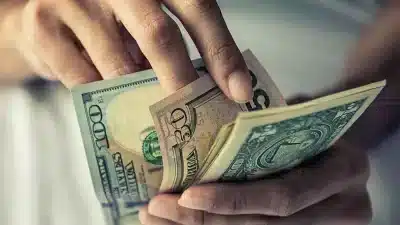It’s easy to think that if you’re wealthy, you don’t need to worry about emergency funds. After all, with a high income or plenty of assets, why bother keeping cash on the sidelines?
But this common belief can leave even the rich scrambling when life throws a curveball.
Let’s break down why the myth “you don’t need an emergency fund if you’re rich” doesn’t hold up—and what smart wealth management really looks like.
Why People Believe It
If you have a big paycheck or a fat investment portfolio, it’s easy to assume you’re immune to financial surprises. After all, you can afford it, right?
Many high earners believe they can simply sell investments or tap into other assets if something unexpected happens. Others think their income is so stable or their credit limits so high that cash reserves are unnecessary.
Some financial experts even argue that high-income professionals can easily “self-insure” or access funds quickly enough to skip the traditional emergency fund altogether.
It’s a myth that rich people don’t need a rainy day fund.
The Reality
Here’s the truth: No one is immune to financial shocks—no matter how much money they make.
Wealthy individuals can face sudden job loss, business downturns, lawsuits, costly medical emergencies, or even costly home repairs.
In fact, the more complex your finances, the more critical it is to have a dedicated, liquid emergency fund.
Here’s why:
- Access to Cash Matters: Having a separate, easily accessible cash reserve means you won’t have to sell investments at a loss or during a market downturn, which can save you money in the long run.
- Complex Risks: High earners often have more at stake—think legal liabilities, business risks, or large, unexpected expenses that can’t be covered by insurance alone.
- Income Isn’t Always Stable: Even top executives, business owners, and professionals can face sudden income disruptions, leadership changes, or industry downturns.
- Peace of Mind: Knowing you have a financial buffer helps you avoid panic decisions, high-interest debt, or dipping into funds earmarked for other goals.
- Expert Consensus: Financial experts like Suze Orman recommend that even the wealthy keep significant cash reserves—sometimes in the millions—because their expenses (and potential emergencies) are bigger.
Even wealthy celebrities and high-net-worth individuals can find themselves in financial distress if they don’t have an emergency fund.
For example, Michael Jackson, despite earning hundreds of millions, was reportedly over $500 million in debt at the time of his death and came close to losing his famous Neverland home because he relied on loans and had little liquid cash for emergencies.
Similarly, actress Sharon Stone lost her entire $18 million savings after a severe stroke left her unable to manage her finances, illustrating how sudden health crises can quickly drain even substantial wealth if there’s no accessible emergency fund to fall back on.
These real-life examples show that without a dedicated cash cushion, even the rich can face foreclosure, bankruptcy, or the loss of their lifestyle when unexpected expenses or income disruptions hit.
If you don’t have an emergency fund, here’s how to set one up.
Expert Tip
Keep your emergency fund separate from your investment accounts and other savings. This ensures you won’t be tempted to dip into it for non-emergencies and helps you avoid selling investments at an inopportune time.
Choose a money market or high-interest savings account. Every month, set up an automatic transfer from your primary checking account to build your emergency fund.
Aim to keep three to six months of living expenses in a high-yield savings or money market account, even if your monthly budget is much larger than average.
Bottom Line: Wealth doesn’t make you invincible to life’s surprises. An emergency fund isn’t just for those living paycheck to paycheck—it’s a smart, strategic safety net for everyone, regardless of income level.
By keeping a dedicated cash cushion, you can weather life’s storms without derailing your long-term financial goals or taking unnecessary risks





